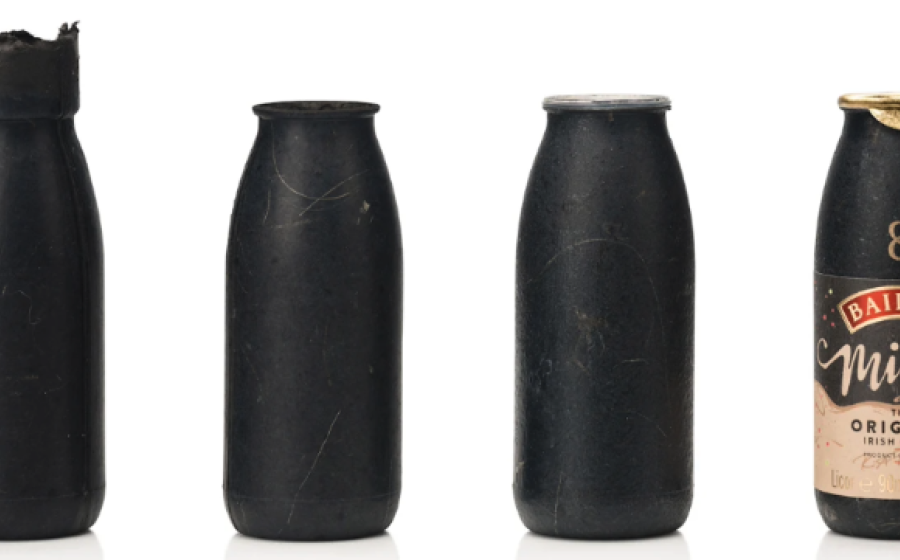
A year after PA Consulting, PulPac, and Diageo trialled a fibre-based bottle for Baileys Original Irish Cream, the innovation continues to demonstrate strong potential for recyclability, CO₂ reduction, and scalability.
As part of its ‘grain-to-glass sustainability’ strategy, Diageo is working to cut its carbon footprint by replacing heavy glass bottles with lighter, fibre-based alternatives. Unlike traditional wet fibre processes, PulPac’s Dry Molded Fiber technology uses no water, consumes less energy, and delivers fully recyclable packaging.
“Dry Molded Fiber eliminates water use, significantly reduces energy, and the bottles can be recycled with normal paper,” said Jamie Stone, sustainable packaging expert at PA Consulting.
The Baileys prototype comprises 90% fluff pulp, 9% PET liner, and minimal foil for sealing. The thin PET barrier does not need separation during recycling, and initial LCAs indicate a 50% lower carbon footprint than virgin PET and 25% lower than rPET.
The first 80ml prototypes were showcased at Barcelona’s Time Out Festival, proving strong supply chain durability. PulPac’s technology also supports bottles from 80ml to 1.5L, enabling brand customization without compromising sustainability.
“Progress over perfection drives our packaging innovation,” Diageo stated, signaling plans for luxury, sustainable solutions as consumer demand grows.
The Bottle Collective now aims to expand this technology, including Dry Molded Fiber caps, and explore waste-derived materials like fruit husks and leaves.
“The Baileys trial shows how partnerships accelerate sustainable packaging innovation,” said Viktor Börjesson, COO at PulPac.
With cost-competitive scalability, this breakthrough could reshape premium beverage packaging and help brands cut carbon at mass-market levels.



